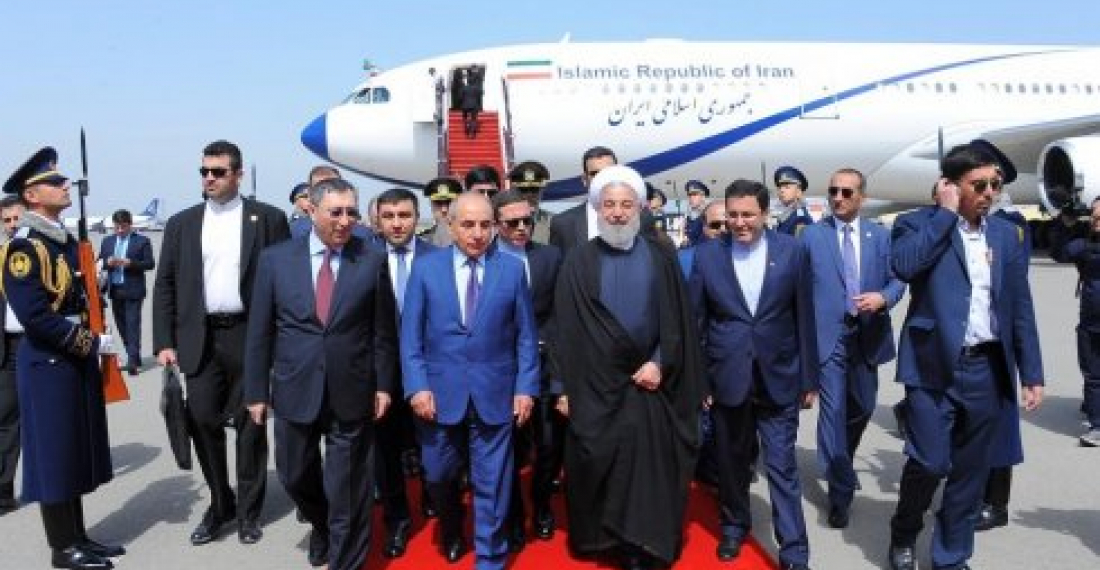Iranian President Hasan Rouhani has arrived in Baku on an official visit. Azerbaijani media sources say that Rouhani will meet President Ilham Aliyev and other Azerbaijani officials.
APA news agency reported from Baku that in the framework of the two-day visit bilateral documents in the fields of industry, agriculture, health and tourism are expected to be signed between the two countries.
On March 29, the presidents of Azerbaijan and Iran will take part in the opening of Neftchala automobile plant and the Astara-Astara railway line, the news agency said
Rouhani travelled to Baku from Turkmenistan where on Monday he held discussions with Turkmen officials. The Iranian FARS news agency quoted Rouhani as saying that that "the Islamic Republic of Iran attaches importance to its cooperation with neighboring states from security and economic points of view." Speaking in Tehran before his departure for Turkmenistan Rouhani expressed the hope that during his visit to the neighboring countries "he would be able to solve regional problems and lead the region towards further stability and security".
source: commonspace.eu with FARS news agency (Tehran) and APA news agency (Baku)
photo: President Rouhani of Iran arrived in Baku on 28 March 2018 at the start of a two day official visit (picture courtesy of TREND news agency, Baku).







